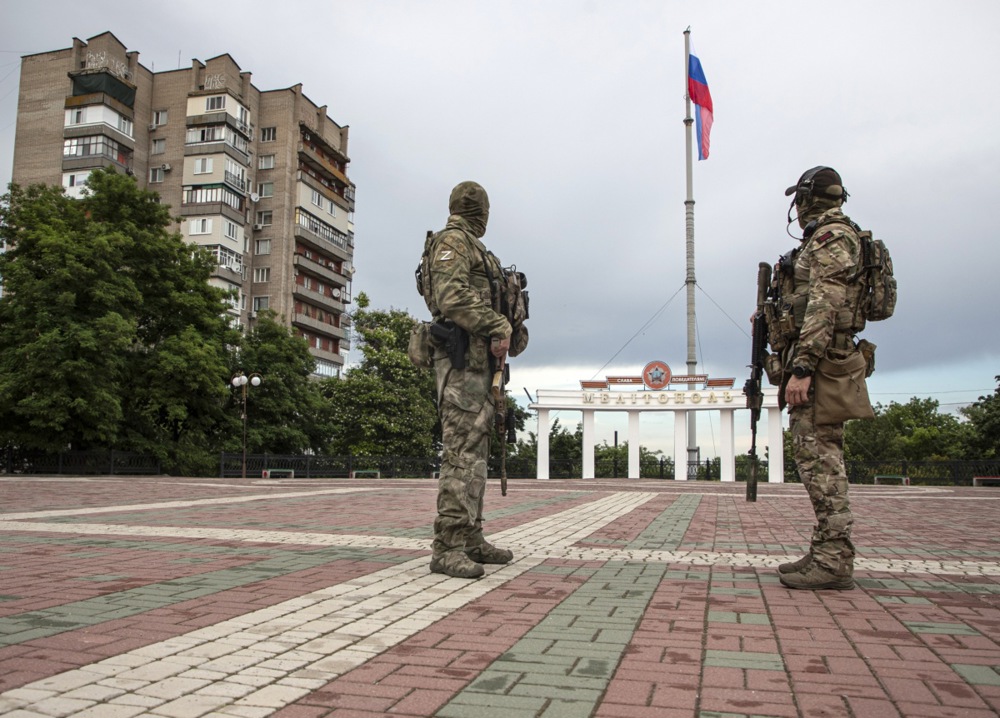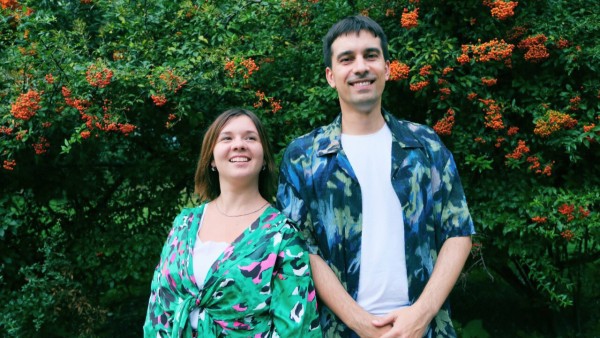The IPI global network demands more efforts by the international community to locate and help secure the release of Ukrainian journalists missing or detained in unclear circumstances while reporting in territories occupied by Russia. Such cases have become increasingly frequent over the past months, according to IPI monitoring.
On October 30, Russian occupying authorities communicated the detention of Heorhii Levchenko, the editor of RIA Melitopol, a popular Telegram channel which published news about events in Melitopol, a city in southern Ukraine under Russian occupation since March 2022. Levchenko and several other inhabitants of Melitopol have now been accused of appeals to terrorism, the National Union of Journalists of Ukraine (NUJU) reported.
According to NUJU, Russian occupying forces saw the Telegram channel as a “media hostile towards them”, detaining Levchenko and several other individuals whose names remain unknown.
At the end of August, Ukrainian media had already reported that the Telegram channel run by Levchenko had been hacked by Russian occupying forces. However, for the next two months, no information was available about the journalist’s whereabouts, or the charges formulated against him.
The situation of the editor of RIA Melitopol mirrors that of retired Ukrainian journalist Iryna Levchenko, who was detained in the same city in May this year together with her husband. Since her arrest several months ago, Russian authorities have not officially communicated the charges against her, with relatives only reporting suspicions that the Levchenkos were arrested on extremism-related charges.
In early October, Ukrainian media also revealed the disappearance of journalist Victoria Roshchyna, a freelancer for the leading Kyiv-based publication Ukrainska Pravda. At the end of July, Roshchyna set out to occupied territories of southern Ukraine, and has been missing since. Russian authorities have not provided information about her potential arrest, and her current whereabouts are unknown.
Another journalist, Dmytro Khilyuk, has been missing since March 2022, after having been taken captive by Russian forces in Ukraine’s northern Chernihiv region. Khilyuk’s relatives only received a short message from him several months later, in which the journalist confirmed that he was alive. Ukrainian human rights groups were also able to confirm that he was under arrest at a prison in Russia close to the Ukrainian border, before being transferred to a facility east of Moscow.
“IPI is deeply alarmed by growing reports of Ukrainian journalists missing or detained in territories occupied by Russia,” IPI Deputy Director Scott Griffen said. “The complete lack of transparency by the occupying authorities worsens the already extremely difficult situation faced by journalists detained on arbitrary extremism or terrorism charges.”
He added: “Russian occupying authorities in Ukraine, whose actions are not supervised by any meaningful institution, can more easily engage in torture and other extrajudicial acts against arrested journalists, about which the international community receives only scant information. The international community must urgently engage with this situation, pushing Russian authorities to provide transparency and free all Ukrainian journalists it is holding hostage.”
Serhiy Tomilenko, the president of NUJU, told IPI that extrajudicial proceedings and torture are a credible threat to Ukrainian journalists detained on occupied territory. Ukrainian media workers are “evident military targets for Russians”, he claimed, explaining that there is “no possibility” to provide them with any kind of legal help or other support, pointing to cases such as that of journalists Oleh Baturin and Serhiy Tsyhipa. The former was arbitrarily detained by Russian forces in March 2022, while the latter was recently sentenced to 13 years in prison by a Russian court in occupied Crimea.
He added: “The situation of journalists is unique because Russian occupying [forces] have the possibility to and in all likeliness do torture [media workers], as well as keep them in inhumane conditions. There are no mechanisms of defence [for these people]. Some form of relative protection or contact [with them] appears only once they are sent [to serve their sentences at] penal colonies in occupied Crimea or in Russia.”



